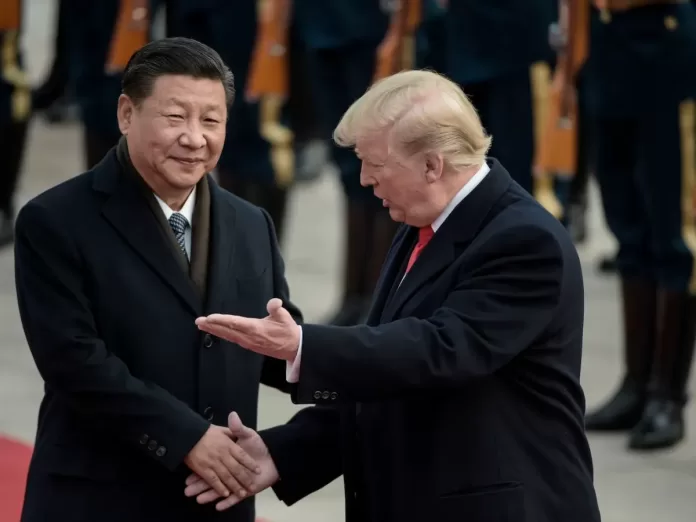Donald Trump took office as the President of the United States. From the election campaign to his inauguration, Trump presented himself in a unique manner. His statements often attracted attention, sometimes scaring people and at other times causing them to laugh. One of the most interesting moments was during a meeting with Justin Trudeau in Florida, where he jokingly suggested making Canada the 51st state of the U.S.
Trump’s repeated threats of imposing tariffs on countries, including Canada, Mexico, and China, caused global disruptions in trade relations. Throughout the election, he presented himself as a protector of Hindus and a friend of Prime Minister Narendra Modi, but did not invite Modi to his inauguration. Instead, he sent a personal invitation to Chinese President Xi Jinping.
This led to speculation. On September 17, 2024, during the election campaign in Flint, Michigan, Trump had mentioned that Modi was coming to meet him the following week and called him a “great person.” However, when Modi visited the U.S. for the QUAD summit, he couldn’t meet Trump due to a busy schedule. This could be one reason Trump did not invite Modi to his inauguration.
Some experts believe that if Modi had met Trump without meeting Kamala Harris first, the Democratic Party might have seen it as biased. Regardless, Trump won the election, and his victory kept him in the spotlight with every statement he made leading up to his inauguration.
During his victory speech before the inauguration in Washington, Trump claimed that World War III was imminent, but that he would prevent it. He also referred to the ceasefire in Gaza as the “Trump Effect” and discussed his intentions to resolve the Russia-Ukraine war and instability in the Middle East. He promised historical progress in his term, starting with sealing the Mexico border and launching the largest deportation campaign in U.S. history. He also reiterated that he would not ban TikTok.
Although Xi Jinping did not attend Trump’s inauguration, reports suggest that Trump plans to visit China within his first 100 days in office. The Wall Street Journal also reported that Trump had discussed a potential visit to India with his advisers. Prior to this, Trump and Xi had spoken over the phone, with Trump sharing that they had discussed issues such as trade, TikTok, and fentanyl.
Under President Biden, U.S.-China relations had deteriorated significantly. During his campaign, Trump had been harsh on China, threatening additional tariffs on Chinese products. But as he approached his inauguration, everything changed. News emerged that Trump and Xi had spoken on the phone, and discussions about halting the TikTok ban began to surface. Trump also stated that he and Xi would work together to make the world more peaceful and secure.
This election saw Trump diverging from his previous term in office. Whether it was his campaign style, responding to opponents, or his interactions with world leaders, everything seemed more polished. Trump has often stated that U.S. presidents should speak directly to foreign adversaries, especially China. This shift towards engaging China might have been motivated by this approach. Recently, Trump’s adviser Jason Miller stated in an interview with CNN that Trump aims to change U.S. relations with certain countries, including China, and that direct communication is necessary for that.
According to the Wall Street Journal, Trump has also asked China to crack down on the supply of fentanyl and is working on plans to impose new tariffs on Chinese imports














